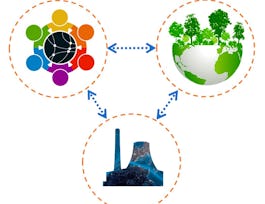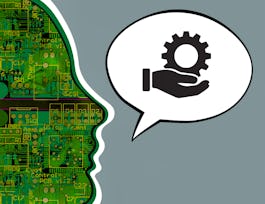Resilience & Leadership: Design, Development, & Integration is the third course of the ‘Resilience Engineering and Leadership in Crisis’ specialization. This course emphasizes the importance of practices like organizational learning and adaptive change management amid uncertainty. Resilience engineering principles and strategies are combined with critical leadership knowledge and skills essential to navigating unanticipated catastrophic disruptions. Learners will integrate selective assignments from the previous courses in this specialization (Resilience & Leadership: Concepts, Definitions, & Frameworks, and Resilience & Leadership: Tools, Methods, & Applications) to construct a comprehensive resilience report using the project scenario they identified in Course 1.



Resilience & Leadership: Design, Development, & Integration
This course is part of Resilience Engineering and Leadership in Crisis Specialization

Instructor: John E. Thomas
Sponsored by BIDAcademy
Recommended experience
What you'll learn
Describe how organizational learning can influence crisis management strategy.
Apply the concepts of Adaptive Change to complex socio-technical systems.
Explain how Adaptive Management principles and practices support resilience.
Appraise the relationship between sustainable development and leadership in crisis.
Details to know

Add to your LinkedIn profile
5 assignments
September 2024
See how employees at top companies are mastering in-demand skills

Build your subject-matter expertise
- Learn new concepts from industry experts
- Gain a foundational understanding of a subject or tool
- Develop job-relevant skills with hands-on projects
- Earn a shareable career certificate


Earn a career certificate
Add this credential to your LinkedIn profile, resume, or CV
Share it on social media and in your performance review

There are 5 modules in this course
Welcome to Resilience & Leadership: Design, Development, & Integration. This is the last course of the Resilience Engineering and Leadership in Crisis specialization. In this first module, you'll examine organizational learning in relation to crisis events and introduce the concepts of single- and double-loop feedback and integration during the learning process. We’ll also review the role of organizational learning and building resilience. The principles of adaptive change are introduced with an overview of Panarchy or nested adaptive cycles. Finally, Adaptive Management (part 1 of 2) is introduced as an alternative framework for navigating uncertainty in the natural environment.
What's included
7 videos10 readings1 assignment1 peer review
Leading trends in crisis management relevant to the internal and external landscape of the organization are reviewed in this module, to provide an outlook for moving forward. Societal and cultural dynamics continue to be prominent factors in effective crisis management. You'll learn how cross-domain collaboration and consideration for transboundary impacts can strengthen and expand the ability to effectively prepare and respond to crisis events. By the end of this module, you'll understand that complexity and uncertainty contribute to the process and application of adaptive management principles and initiatives.
What's included
7 videos8 readings1 assignment1 peer review
In Module 3, we’ll consider the impact of COVID-19 on critical infrastructure resilience. Next, we’ll take a fresh look at climate change and some of the difficult challenges it presents. Lastly, we'll look at sustainable development as a multidimensional endeavor involving systems of systems across local, regional, national, and global scales.
What's included
6 videos8 readings1 assignment1 peer review
In Module 4, you’ll look at human and organizational resilience in the context of critical infrastructure resilience. We’ll consider how human and organizational capacities to respond and recover from unanticipated events can enhance or diminish the resilience of CI systems. With these considerations in mind, you’ll examine how human choices can impact vulnerability and exposure to disruptions. Finally, we’ll look at an alternative framework for assessing the capacity to respond to unanticipated events. The generic nature of the framework is suitable to address a wide range of different types of disruptions.
What's included
6 videos7 readings1 assignment1 peer review
In this last instructional module, you’ll explore concepts and frameworks for integrating resilience engineering with principles and practices of leadership in crisis. First, we’ll look at an initiative to identify and track innovative approaches to sustainable and resilient infrastructure. Then we examine a conceptual framework for linking psychological human development and resilience with critical infrastructure resilience. Complexity leadership is explored in the context of complex adaptive systems along with a set of practical principles and practices for implementation. Resilience thinking is presented as a method for working with socio-ecological systems and extended to socio-technical systems. Finally, you'll discover that leadership in crisis is considered to be an ongoing practice and a new norm regarding conventional concepts of leadership.
What's included
6 videos6 readings1 assignment1 peer review
Instructor

Offered by
Why people choose Coursera for their career




Recommended if you're interested in Physical Science and Engineering

University of Colorado Boulder

University of Colorado Boulder

University of Colorado Boulder

University of Colorado Boulder

Open new doors with Coursera Plus
Unlimited access to 10,000+ world-class courses, hands-on projects, and job-ready certificate programs - all included in your subscription
Advance your career with an online degree
Earn a degree from world-class universities - 100% online
Join over 3,400 global companies that choose Coursera for Business
Upskill your employees to excel in the digital economy


